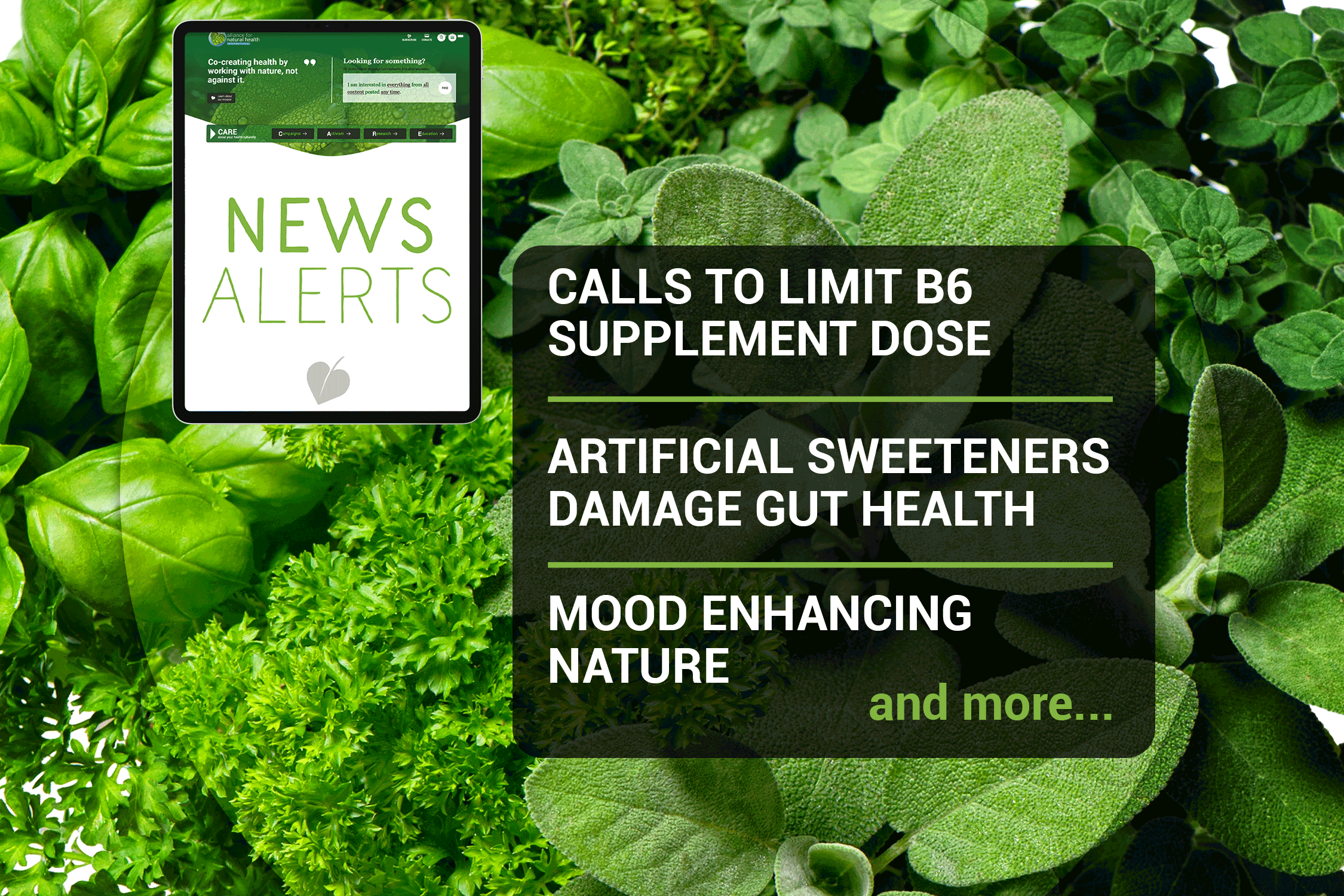Content Sections
Call to limit B6 supplement dose
A citizens' petition lodged in the US by Emery Pharma, an analytical laboratory firm, calls on the Food and Drug Administration (FDA) to restrict the amount of B6 in supplements to 10mg per day or less. Dosages higher than 10mg should only be sold under prescription. The petition dubs doses of 50mg or more as a ‘megadose’. The petition has received significant pushback from the supplement industry which cites a lack of safety signals to support such a move. A recently published preprint paper, co-authored by ANH founder Rob Verkerk PhD, tackles the long-contested subject of B6 supplementation dosage by taking a risk/benefit approach to the assessment of nutrient supplementation levels. The paper concludes that the maximum safe level for B6 supplementation is 74 mg per day. Read the Special Report written by Rob Verkerk PhD on B6 for more information on why very high or inadequate intake can result in the same health effects and why vitamin B6 should not be regulated.
Kids diets need to be improved
The FDA wants to improve children’s diets by reducing the amount of toxins (under its ‘Closer to Zero Action Plan’) and salt in baby food. True to form, the FDA will be working with the food industry to create ‘healthier foods’. The announcement comes following new research from the Centers for Disease Control and Prevention (CDC) that found that levels of childhood obesity in the US have surged to unprecedented levels during the coronavirus crisis. Campaigns to reduce the intake of salt in baby food are misguided and don’t follow the science that shows we need to eat salt, but at the right levels to remain healthy. As with all things the situation is not as simple as it first seems. In an ideal world, parents would be choosing to make fresh, unprocessed food at home for their babies and children and not be choosing processed and packaged foods. See our nutrition recommendations in Food4Kids Guidelines.
Artificial sweeteners and gut health
Artificial sweeteners damage the gut microbiome by interfering with the communication between the microbes making up the microbiome. Publishing in the International Journal of Molecular Sciences, researchers from Israel’s Ben-Gurion University of the Negev found artificial sweeteners interfere with the normal functioning of bacterial species in the gut. The findings have been dismissed by the International Sweeteners Association (ISA) which cited problems with the study’s methodologies. The harms of artificial sweeteners are well established in the scientific literature as is the dismissal of such concerns by the industry that makes them.
Basil may protect against Alzheimer’s
A natural compound found in the culinary herb basil, known as fenchol, may help to protect against the development of Alzheimer’s disease. A new study published in Frontiers in Aging Neuroscience found that fenchol can mimic the action of short chain fatty acids on FFAR2 receptors and block the formation of amyloid plaques in the brain. Ginger and sage are two other herbs and spices that are also known to help manage mild to moderate Alzheimer’s and reduce plaque formation in the brain. The use of liberal helpings of herbs and spices as part of an anti-inflammatory diet can all help to reduce the risk of developing brain inflammation and associated diseases, but addressing metabolic dysfunction is essential.
Mood enhancing nature
Spending time in nature can improve our mood and reduce levels of anxiety. It’s so much a part of our DNA as humans, and something that we’re passionate about in the ANH office. That’s why we were pleased to see a new study from researchers at the University of York, published in ISSM – Population Health, which supports nature based activities (which the researchers call nature based interventions or NBIs) for enhancing mood, reducing anxiety and promoting positivity. The most beneficial activities were found to be gardening and exercising in nature, but taking part in conservation activities and forest bathing was also found to help people feel better. To experience the benefits of being in nature check out Meleni’s recent Sovereign Breath Practice podcast, find yourself a quiet spot outside and relax into the arms of Nature.








Comments
your voice counts
There are currently no comments on this post.
Your voice counts
We welcome your comments and are very interested in your point of view, but we ask that you keep them relevant to the article, that they be civil and without commercial links. All comments are moderated prior to being published. We reserve the right to edit or not publish comments that we consider abusive or offensive.
There is extra content here from a third party provider. You will be unable to see this content unless you agree to allow Content Cookies. Cookie Preferences